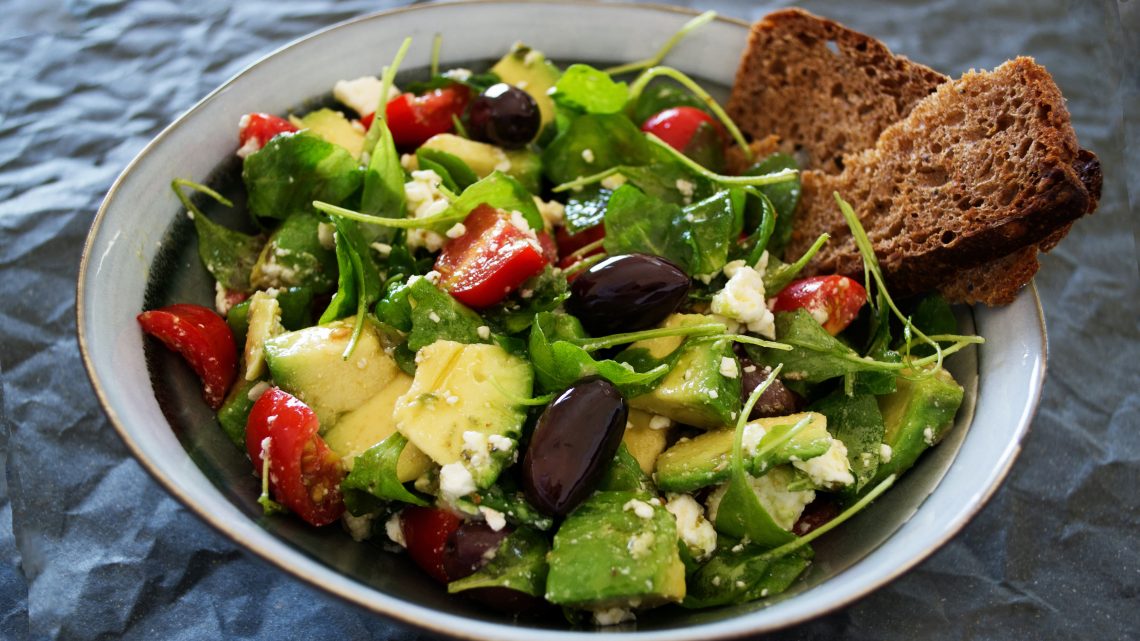From Garden to Table: Crafting the Perfect Greek Salad Recipe
When it comes to wholesome and delectable dishes for those looking to make their own cookbook, the traditional Greek salad holds a special place in the hearts of food enthusiasts worldwide. Bursting with vibrant colours, fresh ingredients, and enticing flavours, this iconic dish is a masterpiece of simplicity and taste. In this blog post, we will take a delicious journey through the origins of the traditional Greek dish, uncover its health benefits, explore its unique characteristics, and unveil the perfect recipe to create this Mediterranean marvel at home.
What is a Traditional Greek Salad Made Of?
The traditional Greek salad, also known as Horiatiki, is a celebration of fresh, wholesome ingredients sourced from the bountiful Greek countryside. The foundation of this culinary delight includes ripe tomatoes, cucumbers, bell peppers, and Kalamata olives, all carefully combined to deliver a harmonious explosion of taste and texture. The salad is generously adorned with creamy Greek feta cheese and seasoned with aromatic oregano and a drizzle of extra-virgin olive oil.
Perfect Greek Salad Recipe:
Prepare to delight your taste buds with the authentic flavours of Greece with this traditional Greek salad recipe:
Ingredients:
- 3 ripe tomatoes, cut into wedges
- 1 cucumber, sliced
- 1 green bell pepper, thinly sliced
- 1 red bell pepper, thinly sliced
- 1 small red onion, thinly sliced
- ½ cup Kalamata olives
- 200g Greek feta cheese, crumbled
- 1 teaspoon dried oregano
- 2 tablespoons extra-virgin olive oil
- 1 tablespoon red wine vinegar
- Salt and pepper to taste
Instructions:
- In a large salad bowl, combine the tomatoes, cucumber, bell peppers, red onion, and Kalamata olives.
- Gently toss the ingredients to mix them evenly.
- Sprinkle the crumbled feta cheese on top of the vegetables.
- Drizzle the extra-virgin olive oil and red wine vinegar over the salad.
- Season with dried oregano, salt, and pepper.
- Toss the salad lightly once again to coat the ingredients with the dressing.
- Serve fresh and enjoy the tantalizing flavours of Greece.
Is Greek Salad Good for You?
Absolutely! Greek salad is not just a treat for your taste buds; it is also a nutritious powerhouse. Bursting with vitamins, minerals, and antioxidants, the combination of fresh vegetables and olive oil contributes to a well-rounded and heart-healthy meal. Tomatoes are rich in lycopene, cucumbers hydrate your body, bell peppers provide vitamin C, and olives offer healthy monounsaturated fats. The feta cheese, made from sheep’s milk, is a great source of calcium and protein. Together, these ingredients create a well-balanced salad that promotes overall health and well-being.
What’s the Difference Between a Greek Salad and a Mediterranean Salad?
While the terms “Greek salad” and “Mediterranean salad” are sometimes used interchangeably, there are subtle distinctions between the two. The primary difference lies in the use of specific ingredients. While both salads incorporate fresh vegetables and olive oil, Greek salad is characterized by the addition of feta cheese and Kalamata olives, giving it a uniquely Greek flavour. On the other hand, a Mediterranean salad may incorporate a broader range of Mediterranean ingredients, such as artichokes, sun-dried tomatoes, or even couscous.
Does Greek Salad Contain Onion?
Yes, a traditional Greek salad typically contains red onion. The sharp, slightly sweet flavour of red onion complements the other ingredients, adding a delightful bite to the overall taste of the salad. However, if you’re not a fan of raw onion, you can reduce the quantity or soak the sliced onions in cold water for about 10 minutes before adding them to the salad. This will mellow out their sharpness while retaining their flavour.
Is Greek Feta Cheese Healthy?
Greek feta cheese, made from sheep’s milk or a mixture of sheep’s and goat’s milk, is not only delicious but also a healthy addition to your diet. Rich in calcium and protein, feta cheese helps support bone health and muscle function. It is also a good source of essential vitamins and minerals, including riboflavin, vitamin B12, phosphorus, and zinc. However, like all cheeses, feta cheese should be consumed in moderation due to its high sodium content.
Vibrant flavours and health benefits
Embark on a culinary adventure with the traditional Greek salad, and discover the vibrant flavours and health benefits of this Mediterranean delight. Whether you savour it as a standalone meal or pair it with grilled Greek chicken for a more substantial feast, the refreshing combination of fresh vegetables, tangy feta cheese, and fragrant olive oil will transport you to the picturesque shores of Greece. So, gather the finest ingredients, drizzle on some divine Greek salad dressings, and relish every mouthful of this timeless classic. Opa!













